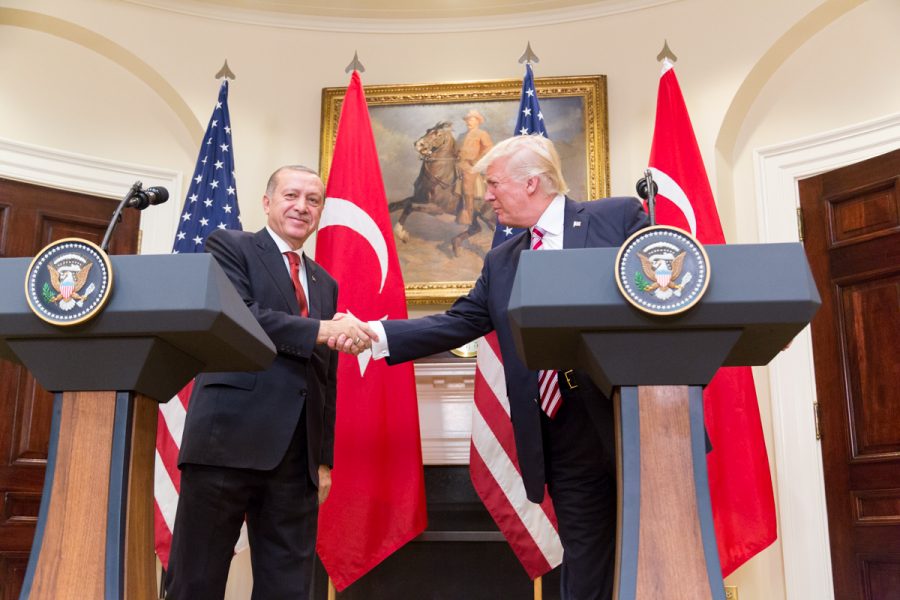What’s going on in Syria with Russia, the U.S., and Turkey?
Since 2011, Syria has been engaged in a civil war. The rebels have been backed by the U.S., and the Syrian government has been backed by Russia.
In 2014, a new group called ISIS declared itself a new state, claiming parts of recognized Syria. The Kurds, a stateless ethnic group located in parts of Syria and Turkey, have been fighting both the Syrian government and ISIS. The United States has been supporting the Kurds in their fight against ISIS, as they were a relatively efficient organization which resulted in the loss of ISIS-controlled lands.
Turkey wants to create a buffer zone between the Syrian-Turkish border to prevent land from being lost to the Kurds. For years, the Kurds have called for some form of having a state of their own. Currently, they have some level of regional autonomy near Iraq, but do not have an officially recognized state. While the chances of becoming a state anytime soon are slim, Turkey aims to prevent the growth of one before it gained any traction.
On Oct. 6, Trump announced U.S. soldiers would be withdrawing from Kurdish-controlled areas, and in the following days Turkey invaded the region, launching an offensive against the Kurds. The Kurds have been key players in the fight against ISIS, and many saw the departure of US troops to be a betrayal. Trump threatened that if Turkey where to take “off limits” actions in Syria, he would “obliterate” their economy, presumably in the form of sanctions. Turkey is a NATO ally, so formal threats against them are unprecedented.
Despite the threats, just three days later, Turkey invaded Kurdish-controlled Syria in “Operation Peace Spring.” Trump immediately faced bipartisan backlash, as many felt the Kurds were being betrayed by the US, left to be slaughtered by Turkey. The Kurds then paused their military operations against ISIS in order to focus on the Turkish assault. Syrian officials reported there would be a surge in ISIS activity with the US leaving the region. Days later on October 12, videos were reported showing ISIS prisoners escaping.
On Oct. 13, officials began preparing to remove the last 1,000 U.S. troops out of northern Syria as Turkey continues their offensive.
On Oct. 14, Trump declared sanctions on Turkey, increasing tariffs on steel up to 50 percent, and ceasing negotiations on a $100 billion trade deal.
On Oct. 16, US troops began bombing their own posts as Turkish-backed soldiers began closing in. Turkish President Recep Tayyip Erdoğan refused to meet with Vice President Mike Pence and Secretary of State Mike Pompeo, stating he will only address Trump.
On Oct. 17, a ceasefire between Turkey and the Kurds was announced by Vice President Pence. However, Turkish Foreign Minister Mevlut Cavusoglu during a news conference said, “This is not a cease-fire. We will pause the operation for 120 hours in order for the terrorists to leave.”
Days later, new reports emerged that Turkey may have used chemical weapons on the Kurdish civilians in formerly U.S. backed areas of Syria. On Oct. 21, Pompeo stated that the U.S. would be willing to take military action against Turkey should it be needed, effectively destroying the NATO agreement in theory.
On Oct. 23, Turkey and Russia signed a deal splitting their power in Syria, as well having to work together to push the Kurds 18 miles into Syria from the Syrian-Turkish border. Turkey will create a buffer zone, or what they call a “safe zone” between Turkey and Kurdish forces. The U.S. was not included in the deal, removing any impact or influence the U.S. may have had previously in the region.


